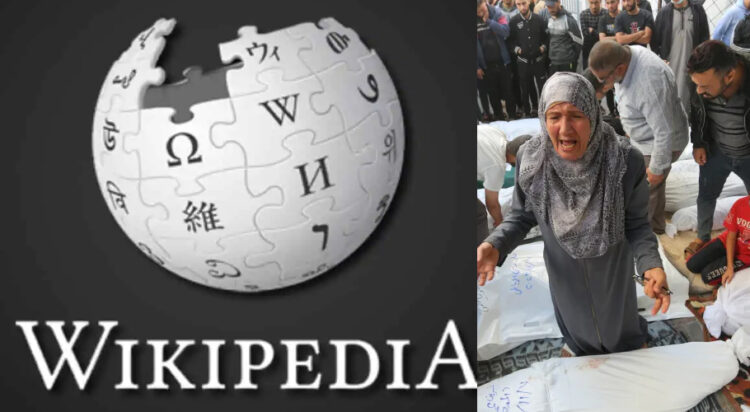Wikipedia, the popular open-source information website, has officially added “Gaza genocide” to its “List of Genocides” page, indicating a remarkable shift in how Israeli actions in Gaza are viewed on the international stage.
The decision to formally add “Gaza Genocide”, which now appears is the top entry in the list as the page shows articles in reverse chronological order, came after months of intense discussion among the platform’s editors. It is worth mentioning that United Nations agencies, and non-governmental organizations have accused Israel of carrying out a genocide against the Palestinian people in the wake of October 7 attack.
“Experts, governments, UN agencies, and non-governmental organizations have accused Israel of carrying out a genocide against the Palestinian population during its invasion and bombing of Gaza during the ongoing Israel–Hamas war,” according to the Wikipedia entry for “List of genocides.” The page continues with a list of Gaza’s death toll, noting that civilians make up the vast majority of those killed.
Following the official Request for Comment process on Wikipedia, which started in July, the decision was made to add the genocide in Gaza to the list. The inclusion’s editors contended that it satisfied the page’s requirements for incidents “classified by significant scholarship” as genocide. They also noted that there was more intellectual agreement on the Gaza situation than there was on some of the other items on the list, like the genocides in Darfur and Rohingya.
British Wikipedian, Stuart Marshall, made the final ruling in September, decisively supporting the article’s inclusion. “Based on the strength of the arguments … and it’s not close … I discarded the argument that scholars haven’t reached a conclusion on whether the Gaza genocide is really taking place”, Marshall wrote in his decision. “The matter remains contested, but there’s a metric truckload of scholarly sources linked in this discussion that show a clear predominance of academics who say that it is.”
Marshall concluded his ruling with the straightforward statement: “We follow the scholars.”



































